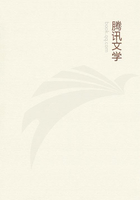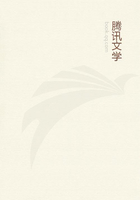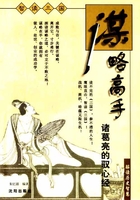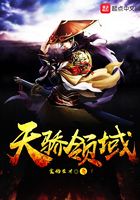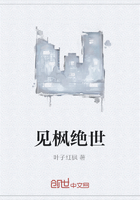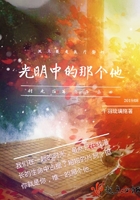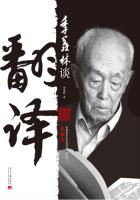AT DILLIGEN
It was well on in the afternoon of August 30th or 31st when Stanislaus arrived at Augsburg. The town was strange to him. He had to ask his way to the Jesuit house.
"I want to see Father Canisius," he told the porter at the door. "I have a letter of introduction to him."
The porter was very sorry, but Father Canisius was not in Augsburg. Stanislaus' heart fell. Not in Augsburg! His four hundred miles on foot for nothing! It was a terrible disappointment.
"Wait a moment," said the porter, "until I call one of the Fathers."
As Stanislaus waited, he kept asking himself, "What shall I do? What shall I do now?" And for a little while he could not think clearly. He felt almost sick. But he was not the kind to be discouraged long, and before the porter returned with the Father he had made up his mind.
"Since Canisius is not in Augsburg, well, I'll go to whatever place he is in.
The Father who came was all regrets. Canisius had gone to Dillingen. But would not Stanislaus come in, and at least rest a few days before seeking him further? No, Stanislaus was going on - at once.
"How far is it?" he asked. "And can you point me out the road?"
"It is about thirty-five miles," the Father answered. "But you can't go on this evening. You must be dreadfully tired."
Yes, he was tired, but not so tired that he could not go to Dillingen.
It is only a little way, after all," he said, smiling as he always smiled. But he stopped to eat something with the Jesuits, both because he was hungry, and because it would be discourteous to refuse all their kind offers.
One of the lay-brothers had to go on business to Dillingen, so he hastened to accompany Stanislaus. It is from his testimony that we know what happened on the way.
Before the sun had quite set, he was on the road once more. He slept in a field that night. He was up early the next morning, and stepped out bravely, fasting, and hoping for a chance to go to Holy Communion.
The evening before, he had left Augsburg a good many miles behind. A few miles more in the early morning brought him to a little village. From some distance he saw the spire of its church. He hastened his steps, lest Mass should be over before he reached the place.
When he came to the church, he saw through its open door a scattered little congregation at their prayers. He entered quickly, sank to his knees, and dropping his face between his hands began to pray. But somehow the place felt strange. After a bit he looked about him, and saw with astonishment that he was in a Lutheran church. The Lutheran heresy was still young and kept up many Catholic practices. It was easy to be deceived.
He felt a little shocked. He had been preparing to receive Holy Communion, and now he should have to go without. But as he looked about, the church to his eyes glowed with light. Out of the light came a troop of blessed angels and drew near to him. He was frightened, delighted, all at once. Then he saw that one of the angels bore with deep reverence the Blessed Sacrament, and that God had granted his desire for Holy Communion. He received It with quiet joy, but simply, humbly, for he knew that this miracle of Its coming to him was as nothing to the miracle that there should be any Blessed Sacrament at all. Since God had stooped to leave us His Flesh and Blood, the manner in which He gave It was of quite secondary importance.
It would have astounded us to be in his place in the little Lutheran church that morning. We try to fancy how we should feel, if we too saw a host of angels approach us. Yet every day we may avail ourselves of that more wonderful miracle, before which even visions of angels pale - the miracle of having God Himself for our Meat and Drink.
That day brought him to Dillingen and Peter Canisius, the "Watch-dog of Germany," as he was called, for his vigilance against heresy. Canisius read the letter of Father Antoni, and listened to Stanislaus' story. It was all quite wonderful. As the boy talked, Canisius looked at him and studied him: not quite seventeen, lively, handsome, full of spirit and daring, quick in speech, eager, affectionate, pious.
You might call Canisius a man of war, an old veteran. His hair had grown gray in battles of the soul, in fighting back heresy, in strengthening weak hearts through that age of trial. He knew the value of enthusiasm, but he knew its weakness, too.
"A very taking lad," he thought to himself. "He flashes like a rapier. But will his metal stand hard use?"
It was the thought of common sense. He did not mistrust Stanislaus. But, on the other hand, what did he know about him? He had not much to go by as yet; only Antoni's letter, and the boy's engaging presence. He would take no definite step about admitting Stanislaus into the Society until he did know more.
"Yon want to be a Jesuit?" he said, with thoughtful brows. "When?"
It was on Stanislaus' tongue to say, "Now, at once." But he hesitated amoment, and said instead, "As soon as you think fit."
You are a stranger to us, you know," Canisius went on, smiling a little, but pleasantly. "And before we admit men amongst us, we need to know that they have something more than a mere desire to join us.. That takes time to find out. Are you willing to stop in the college here for a while?"
Stanislaus answered promptly, "Of course I am."
"Not as a student," said Canisius. "But as a servant?"
"As anything you want," Stanislaus agreed.
"Well, come with me," Canisius said, and he led the way to the kitchen.
"Here's a new cook," he said to the brother in charge. "At least, he may have in him the makings of a cook. Can you give him something to do?"
It was not a very encouraging reception, although it was not so bad as it may sound, condensed as it is in these pages. Neither was it meant to be encouraging. It was meant to test.
Stanislaus was as cheerful as a lark. He rolled up his sleeves, smiled at the brother, and waited orders. The brother smiled back, and said:
"First, I think you will have something to eat. Then we shall see about work."
The Jesuit college at Dillingen, Saint Jerome's, was a big place and numbered many students. Many students mean many cooks and servers at table and servants about the house. Stanislaus took his place amongst a score of such. He washed dishes, helped prepare food, swept, scrubbed -whatever he was told to do. He ate with the servants, took his recreations with them. And he went about it all as simply and naturally as if he hadbeen doing nothing else all his life.
His jolliness and kindness won him friends on all sides, as they had always done. He kept up his prayers, you may be sure; ran in to visit our Lord in the Blessed Sacrament whenever he was free to do so; made all he did into a prayer. And of course that irritated some of the other servants, just as it had irritated his brother Paul. And so he had no lack of teasing and petty insults. But he just smiled his way through them and kept on.
He was perfectly happy, entirely confident that he was doing God's will. As for the work, he chuckled to himself at the idea that Canisius thought this a test! He would willingly do a thousand times harder things than that for Almighty God. And after all, he said, it really was not so hard. Many a better man than he had to work much harder, at much more unpleasant tasks. And what would it matter in eternity, if he scrubbed pots and pans and floors and windows all his life? The only thing that mattered was to please God, and just now this sort of work was what pleased God.



